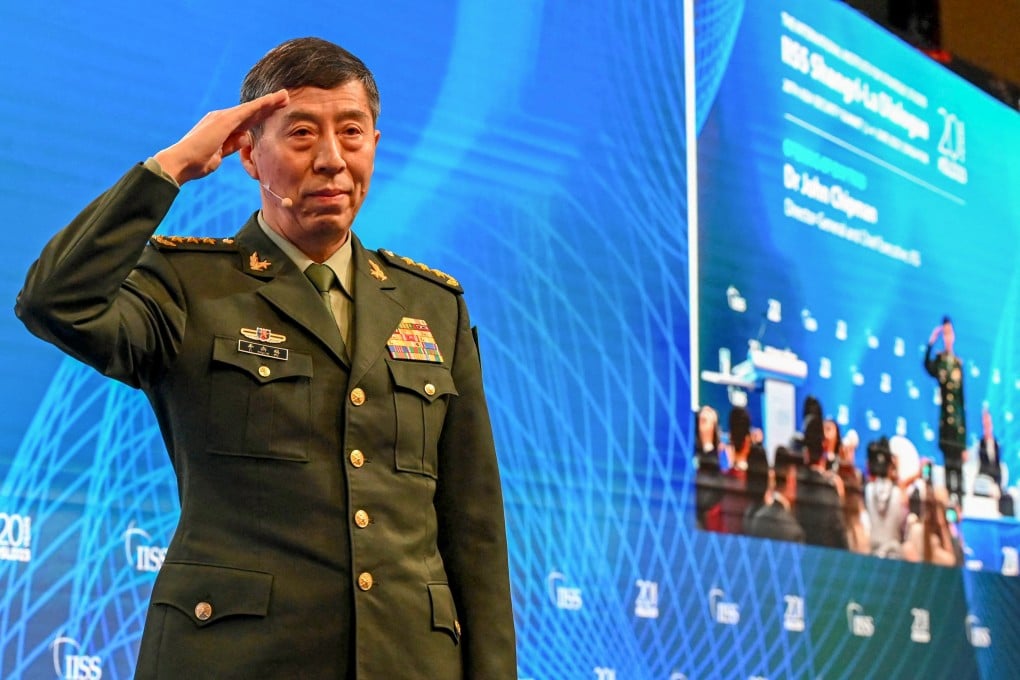Advertisement
Shangri-La Dialogue: Chinese defence minister Li Shangfu accuses US of double standards in veiled attack
- Li tells defence conference that ‘some countries’ only serve their own interests
- But he takes a more tempered tone when referring directly to relations with Washington
Reading Time:7 minutes
Why you can trust SCMP
99+

Jack Lauin Singapore
Chinese Defence Minister General Li Shangfu delivered a thinly veiled criticism of the United States on Sunday, saying “some country” liked to force its rules on others in its “rules-based international order”.
“Its so-called rules-based international order never tells you what the rules are, and who made these rules,” Li said in a speech to the Shangri-La Dialogue in Singapore, without naming the US or its partners.
“It practises exceptionalism and double standards and only serves the interests and follows the rules of a small number of countries,” he told Asia’s biggest defence conference.
Advertisement
In his first public statement to an international audience since becoming defence minister in March, Li highlighted China’s Global Security Initiative, a set of foreign policy principles and directions in line with Beijing’s style of diplomacy announced by Chinese President Xi Jinping in April last year.
They include opposition to unilateral sanctions and the use of economic development to stem instability and conflict.
Advertisement
China has accused the US of using sanctions without getting United Nations approval, but Beijing has imposed unofficial retaliatory trade embargoes on Australia, Canada, Lithuania, South Korea and Taiwan.
“We in China believe that the key for countries to live in harmony is mutual respect and treating each other as equals,” he said.
Advertisement
Select Voice
Select Speed
1.00x